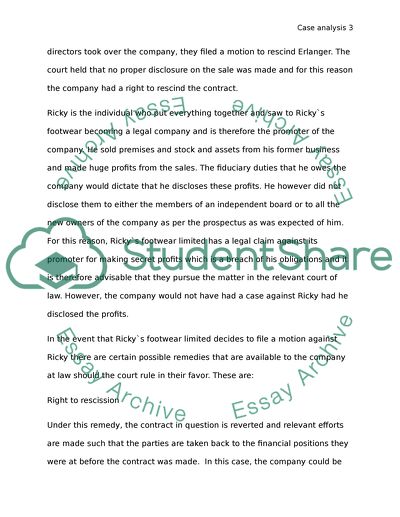Cite this document
(“Company Law case Essay Example | Topics and Well Written Essays - 2000 words”, n.d.)
Retrieved from https://studentshare.org/law/1664006-company-law-case
Retrieved from https://studentshare.org/law/1664006-company-law-case
(Company Law Case Essay Example | Topics and Well Written Essays - 2000 Words)
https://studentshare.org/law/1664006-company-law-case.
https://studentshare.org/law/1664006-company-law-case.
“Company Law Case Essay Example | Topics and Well Written Essays - 2000 Words”, n.d. https://studentshare.org/law/1664006-company-law-case.


